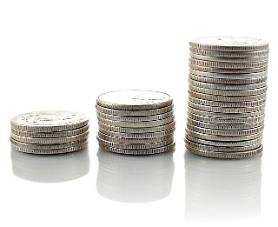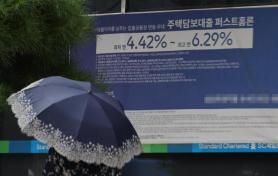![A banner promoting mortgage products at a bank in Seoul [Photo=Yonhap News]](https://image.ajunews.com/content/image/2025/11/18/20251118121143567310.jpg)
SEOUL, November 18 (AJP) - South Korea’s household debt climbed to a record level in the third quarter, though the pace of borrowing eased markedly as tighter regulations took hold, preliminary data from the Bank of Korea showed Tuesday.
Household credit rose to 1,968.3 trillion won ($1.43 trillion) at the end of September, up 14.9 trillion won from the previous quarter. The increase was roughly half the 25.1 trillion won rise recorded in the second quarter, reflecting the impact of recent lending curbs.
Household credit encompasses loans from banks and non-bank financial institutions as well as credit card spending.
Despite repeated warnings of debt growth, overall household credit has now expanded for six consecutive quarters, driven largely by mortgage borrowing.
Household loans excluding card spending increased 12 trillion won to 1,845 trillion won, with home loans accounting for almost the entire gain — up 11.6 trillion won. Other borrowing, including unsecured loans, inched up 300 billion won.
Kim Min-soo, who heads the central bank’s financial statistics team, said June’s regulatory measures — designed to slow mortgage demand and cap unsecured borrowing at levels tied to borrowers’ annual income — helped temper overall credit growth.
Meanwhile, credit card spending climbed by 3 trillion won, buoyed by a rebound in private consumption and increased holiday-season purchases. Kim noted that rising value-added tax payments also contributed to the higher card usage.
The Bank of Korea expects mortgage loan growth to cool further in the fourth quarter as additional measures introduced in October take effect, including stricter limits on high-value loans and borrower leverage.
* This article, published by Aju Business Daily, was translated by AI and edited by AJP.
Copyright ⓒ Aju Press All rights reserved.



